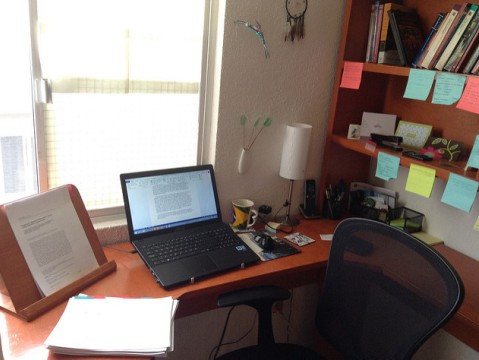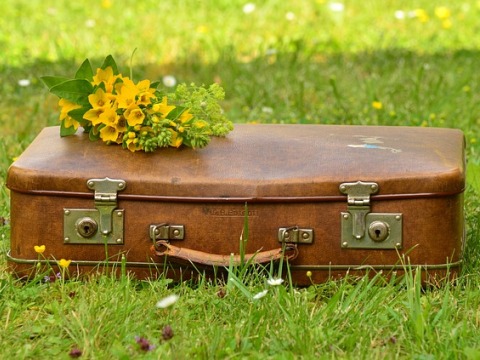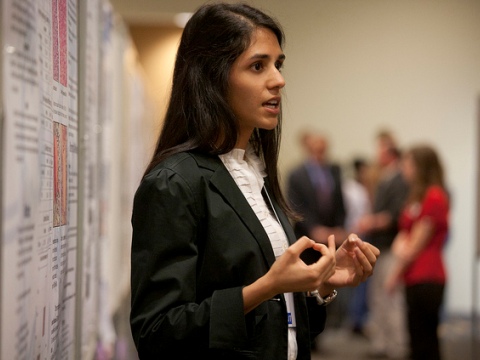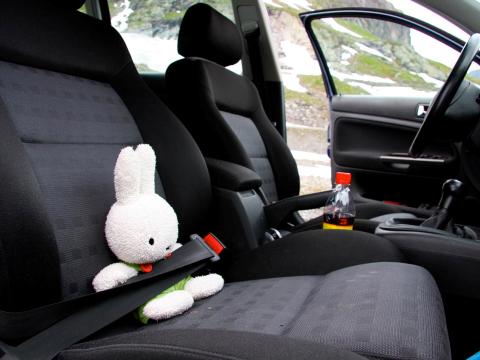Studying abroad is not just an opportunity to see the world and experience different styles of education. It is a chance to make lifelong friends, to better your career opportunities, and to broaden you horizon. The elaborate preparations you need to undertake before embarking on your journey can seem both exciting and unnerving at the same time. So that you don’t overlook anything, here’s a handy overview of things you need to keep in mind before leaving to pursue higher studies abroad.
1. After confirming admission

As soon as you receive the letter of admission from the university where you plan on studying, make arrangements for visas and passports if you do not have them. Make sure you have all other relevant documents such as I-20 ( if you are moving to the US), passport, admission letter, flight ticket printout, recommendation letters, university transcripts, and other academic certificates in order before setting out to study overseas. Remember not to laminate your documents, especially your I-20. Carry all the documents in a suitable manner in your carry-on baggage. This way, even if you lose your check-in baggage, you will not lose any of the important documents.
2. Do your research about the country you are moving to

Read up in advance about the climate, culture, and people of the country you are moving to. This will also help you understand the local customs which you need not be familiar with. For instance, if somebody in the US says, ‘How are you?’, they are not enquiring about your well-being, rather, they are greeting you politely. They are not going to stick around and listen to you pour your heart out about how you really are.
Also, try your hand at journaling. Studies have shown that those who keep a journal find it easier to deal with culture shock than those who don’t. Funnily enough, a vegetarian friend of mine who moved to the US a couple of years ago was dumbstruck when his cheeseburger arrived with a beef patty in it! Indians are likely to encounter similar culture shock incidents.
You can also reach out to acquaintances who are already there or other students who went before you for information you cannot find on the internet. Also, listening to their first-hand experience will you give you a better idea about the place you are relocating to.
3. Clothes

An understanding of the climate will help you pick between the clothes that you would want to take and the ones you would want to leave behind. If you are equipped with the right kind of clothing, adjusting to any type of weather will not be difficult. If your destination has severe winters, make sure you carry warm clothing with you. A leather jacket is not going to help much when temperatures dip below zero degree. Winter clothes such as winter coats, thermal underwear, gloves, neck warmers, hats, and earmuffs can be bought there. Basic woollen sweaters can be bought from India as they are much cheaper here.
4. Money

Monitor the currency exchange rate as it tends to fluctuate. It is always advised to open a bank account in the country you’re moving to. Otherwise, you can use an international debit/credit card, provided that you inform your bank or your credit card company about your plans to move. You could get locked out of your account by your bank if they mistake your transactions for fraudulent activities. Carry a not-too-large amount of the local currency with you. It will save you the trouble of going ATM hunting immediately upon arrival for the expenses you will soon incur.
5. Medical examination

Medical expenses are extremely high in most foreign countries. So, conduct a thorough medical examination and get all the required vaccinations before you head out of India. If you wear eyeglasses, you would want to take a spare frame along!
6. When packing

The important thing to remember is to avoid over-packing. But make sure you carry enough underwear to last a fortnight because doing laundry can be a painful chore. While packing, segregate your clothes based on their purpose for a better understanding of what you need to carry and what you need to leave behind. Leave out blankets and bedspreads and make room for more personalized items that take up less space. Make a checklist of all the important documents you are expected to carry. Also, leave behind electrical and electronic appliances such as your flatiron because the sockets and plugs in most foreign countries are different from the ones we are used to in India.
Every country has a specific list of items that are prohibited on flights. Here are helpful links for you to see the list of items banned by Canada, USA, Singapore, and Britain.
7. Upon arrival

It is advisable to arrive a week earlier than required so that you are comfortably settled in by the time your program begins. This will give you enough time to tend to tasks that will require your immediate attention, such as finding a suitable accommodation (an apartment that is an easy commute from from your lab or department), obtaining a Social Security or tax identification number, opening a bank account, registering for classes, and knowing you way about town. Do not miss the orientation program for new students because it is most instructive in adjusting to life on campus and affords an excellent opportunity to make new friends.
8. Food

There will be restaurants that offer different cuisines, but keep in mind that eating out can be very expensive. So, the cost-effective way to combat your hunger pangs is to dive into cooking. Basic cooking utensils can be brought with you from home. Most apartments will be fitted with electric cooking ranges. So, get sturdy, flat-bottomed vessels. Most of the foodstuffs you’ll need can be found in supermarkets and grocery stores, saving you the trouble of having to carry those with your baggage which will inevitably be bursting at the seams.
9. Transportation

You will not need a car of your own if your apartment is within walking distance or an easy bus or train ride from campus. You can avail of cab services to get around town. Or you can get a bicycle which will help you get around campus as well as outside, at least in warm weather.
10. Recreation

Irrespective of which country you are heading to, there will be recreational activities aplenty. Join organizations and clubs to make new friends so that you do not feel like you are in alien land. Immerse yourself in the local culture and make the most of it while you are there. When in Rome, do as the Romans do! Bon voyage!
Featured image courtesy of UMKC
Editor’s note:
Check out how much money these top US Business Schools received in the form of donations: What It Takes To Have A Top-Tier US Business School Named After .















































[…] If you’re just starting off on a professional career and aspire to attend a top-tier business school, you may find this post interesting: Things To Do Before You Go Overseas For Higher Studies. […]